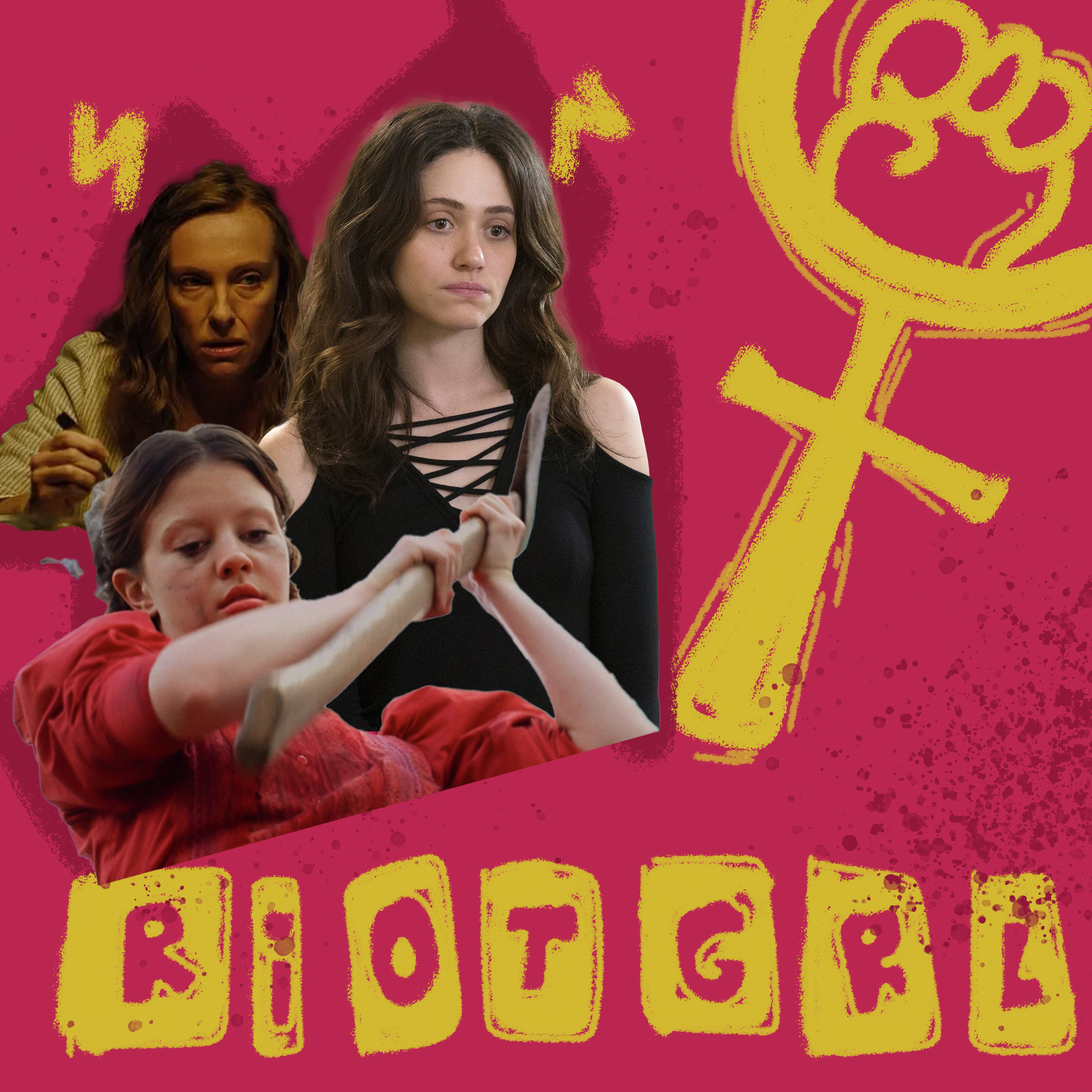
Content warning: This article contains mentions of sexual assault.
A quick search of “female rage” on TikTok yields thousands of results featuring characters from film and television, poetry and a clip of Anya Taylor-Joy discussing her problem with depictions of female anger in film. There are endless images from across pop culture, including Hereditary, Shameless, Hidden Figures and Girl, Interrupted, among others.
To the untrained eye, these compilations might appear to just be women shouting, but there's an added layer of distinct femininity underlying these depictions of feminine rage. These characters’ emotions feel informed by the sociopolitical climate in which women operate, or sometimes even in direct response to those challenges. Perhaps the trend is a response to societal distaste for female displays of what is considered a specifically masculine emotion, and thus its underrepresentation in media. I think it is something more, an amalgamation of political pressures, breaking points and common experiences unique to women. In a post-Roe v. Wade world, it’s not uncommon to see women online singing praises for female rage. When the government can legally strip women of their bodily autonomy, we are helpless to do anything but express fear, sadness and of course, rage.
Fascination with feminine rage is not limited to visual media. Women have been openly angry in music since at least the Riot Grrrl era of the 1990s, which is closely associated with third-wave feminism. Riot Grrrl infused punk’s aesthetics, ideology and DIY sound with feminist political messaging to criticize the patriarchy and organize women into the movement. Bands like Bikini Kill, Sleater-Kinney and Le Tigre were staples of the movement, though obscure now. Riot Grrrl is said to have died out by the late 90s, with subsequent iterations popping up here and there, but it has always remained just beneath the surface of popular culture– well, until its reincarnation started gaining traction recently.
In September, People Magazine interviewed Olivia Rodrigo about female rage following the release of her sophomore album GUTS. “I think there are so many expectations placed on women – you’re always supposed to be grateful and calm and gracious and poised,” Rodrigo said. “Growing up, I really struggled with the conflict of having all these feelings that I felt like I couldn’t externalize and this expectation that I wanted to be this good girl.”
Similarly, Rico Nasty has championed adapting the sound of feminine rage to rap. Her first hit, 2018’s “Smack a Bitch,” incorporates harsh electric guitar, shouted vocals, and of course, lyrics laced with fury. “Rage” is another song utilizing similar elements, with an overtly clear chorus: “I like bad bitches who be ragin’, ragin’, rage.”
Rico Nasty’s use of electronic, rock and hyperpop-influenced sounds to evoke female anger seems to have translated to other artists, too. Rina Sawayama’s 2020 track “STFU!” features distinctly feminine rage: “How come you don’t expect me / To get mad when I’m angry?” Sawayama belts. In this lyric, Sawayama expresses how women are often considered the “more emotional” of the two sexes, yet are simultaneously expected to suppress anger or rage or else be labeled a “bitch” or “hormonal.” Whether for the good of their career, their families, or their marriages, women across the world are expected to suppress their anger in the name of a greater good that men aren’t responsible for.
Smaller artists also tackle feminist topics in a more explicit manner, albeit with arguably less digestible sounds. Heavy rock artist Dana Dentata’s 2019 single “lil blood” tackles stigma around menstruation, including in sexual contexts, and her 2020 track “DO U LIKE ME NOW?” alludes to sexual assault while critiquing plastic surgery and feminine beauty standards. Zheani’s 2019 release “Whore of Babylon” directly confronts the perception of female sexual promiscuity with screeching vocals, hyperpop rhythms, and unfiltered language.
Self-proclaimed “brat-punk” musician Delilah Bon’s discography is exemplary of Riot Grrrl’s resurgence. Her 2023 single “I Wish A Bitch Would” is a pure expression of rage at the current state of the patriarchy. “Don’t trust no man / Don’t trust the police,” is a refrain of the main chorus, and the verses tell the story of Bon’s rage against perpetrators of sexual assault. “How do we ever go out on our own and truly feel safe, ‘cause I really don’t / So they’re gonna blame girls for their clothes / But what does that even mean / She was eleven years old, only a child / Wearing a hoodie and jeans,” Bon seethes. It’s a song about seeking revenge, about making perpetrators pay the retribution they so rarely have to.
Delilah Bon even has a song called “Dead Men Don’t Rape,” likely a nod to the Riot Grrrl band 7 Year Bitch’s 1992 release of the same name. She speaks on multiple feminist issues like abortion, but notably includes how the voices of Black, brown and Indigenous women are drowned out in the feminist movement by white women. Bon’s work does not shy away from explicit, graphic, or harsh sounds and lyrics to convey the gravity and reality of these topics.
The less digestible, antipop sounds of these artists align with the brazen, furious, unconventional feminine anger they communicate in their lyrics. Although punk as we knew it may seem dead, in reality, it's simply taken on a new form – evolved to suit the sonic tastes of our time. Call it Riot Grrrl or call it feminine rage, but it’s not going anywhere as long as women experience injustice.